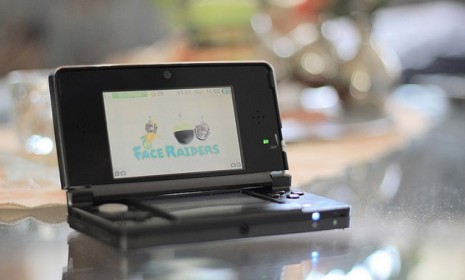The Nintendo 3DS price slash: 4 takeaways
After a disappointing second quarter, the gaming giant is taking extreme measures to win back customers. What went wrong?

A free daily email with the biggest news stories of the day – and the best features from TheWeek.com
You are now subscribed
Your newsletter sign-up was successful
After a dreadful quarter for sales of its 3DS gaming system, Nintendo has decided to drastically reduce the portable gaming device's price — from $250 to $170 — beginning Aug. 12. Although the hand-held console sold 3.6 million units in its first five weeks of release earlier this year, raising hopes of long-term success, the second quarter produced just 710,000 sales, according to The Wall Street Journal, sending Nintendo's stock plummeting more than 20 percent on Thursday. What can we learn from the Nintendo 3DS' implosion? Here, four takeaways:
1. The 3DS bombed because it was was overpriced...
The 3DS' original (inflated) price tag was "motivated by ego and greed," says Chris Morris at Gamasutra. At $250, the company "ignored the budget-conscious consumer that had become the company's lifeblood." But maybe it's not too late. "By slashing over 30 percent off of the price tag, Nintendo is lining up" the 3DS for success, says Richard George at IGN.
The Week
Escape your echo chamber. Get the facts behind the news, plus analysis from multiple perspectives.

Sign up for The Week's Free Newsletters
From our morning news briefing to a weekly Good News Newsletter, get the best of The Week delivered directly to your inbox.
From our morning news briefing to a weekly Good News Newsletter, get the best of The Week delivered directly to your inbox.
2. ... And has overpriced games
"The price drop to $170 is Step 1 toward making 3DS more relevant," says Chris Kohler at Wired, but Nintendo should develop better games at lower prices, too. Right now, a game costs about $40. "When you're a kid, $40 means you get new games on your birthday, at Christmas, and maybe after getting a root canal if you cry enough." And remember, "a game console without games is no game console at all," says Ricardo Bilton at ZDNet.
3. Plus, the console was marketed poorly
Blame Nintendo's dense marketing strategy, says Jason Raznick at Benzinga. "The company is most successful when it releases a ton of games people want to play" in sync with the gaming system. But it released the 3DS "without a single game people wanted to own." Worse, Nintendo had the hubris to brag that it was pricing the 3DS so high because of "the anticipated demand." Brilliant strategy, guys.
A free daily email with the biggest news stories of the day – and the best features from TheWeek.com
4. And the hand-held market is shifting
"With the rise of smartphones and tablets, the handheld market is getting even more competitive," says Max Parker at the Pittsburgh Post-Gazette. Nintendo used to dominate in the on-the-go gaming industry, but that's changed. "Now there are more people fighting over the same slice of pie," and Nintendo needs to adjust accordingly. "I worry, though, that the company doesn't yet comprehend the challenge posed by smartphones," says Slate's Farhad Manjoo.